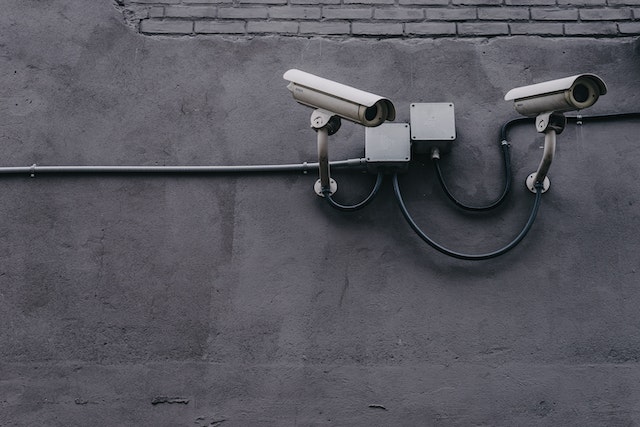As a startup, you should not neglect the importance of security when setting up your new office.
Your workers, properties, and data need ongoing protection from several threats, ranging from human intruders to cyber risks. Technology has advanced considerably in this field, giving us a wide array of solutions that we can use to minimize threats and undesirable events. These technological solutions can provide their benefits both individually and through integration with each other.
Let’s dig deeper into how to improve your startup’s office security using modern tech.
Control Who Has Access to the Office or Specific Areas
Implementing access control solutions allows you to ensure that only authorized individuals are permitted to enter or exit the premises or specific parts of the office. These solutions also provide a permanent record of all personnel movements, which can be used as evidence in case of an incident.
Some of the most simple access control solutions are keypads and keycard readers. You can also install RFID readers that allow users to unlock doors remotely with a smartphone or other device. These solutions are becoming increasingly popular as they eliminate the need for physical keys or cards, thus protecting the office from the event of unauthorized individuals acquiring them as a result of theft or loss.
More advanced technologies for access control include facial recognition systems and biometric devices that scan the iris or fingerprints of authorized personnel. These may be implemented in areas that need additional security, such as data storage rooms or server control centers, and other sensitive areas.
Boost Safety with Cloud-Based Video Security
Effective video security is another essential component of a comprehensive security strategy for your startup’s office. It allows you to monitor the office in real-time and even playback recordings in case of an incident.
There are various decisions to take when setting up your security system.
First, you should choose what type of security cameras you want to use. Based on your available budget the options range from simple CCTV cameras to high-tech motion sensors and infrared cameras, depending on your budget.
Then you must decide where in the office you want to place your cameras. It’s essential to cover the main entrances, hallways, and other access points. You should also consider investing in additional cameras to provide specific coverage of areas where sensitive data or valuable products are stored.
Finally, you may choose to either use a dedicated on-site storage system or opt for cloud-based video security. Commercial security cameras with cloud storage have become a very popular option in recent years. It involves transmitting the footage directly to a secure cloud storage system. This has many benefits, such as
- being able to access video security footage from anywhere, at any time;
- being able to scale your video security system easily
- 24/7 monitoring and recording of footage;
- protecting your data through your cloud storage providers’ advanced cybersecurity solutions and professional experts;
- saving money since you don’t have to worry about hardware maintenance or storage costs.
Install Motion Sensors to Detect Intrusions
Motion sensors use different smart technologies (e.g., infrared, ultrasonic, or microwave) to detect movement and occupancy. In an office setting, they can have multiple purposes, from monitoring single spaces (e.g., desks) to detecting intruders in and around the office.
They are typically very easy to install as they require minimal wiring. Usually, wall-mounted motion sensors are installed near your office’s entryways, while ceiling-mounted motion sensors can be used in larger spaces, such as stairways and hallways.
Factors you should consider when installing motion sensors include their type, sensitivity, and coverage range you need. If done right, installing motion sensors can help you to detect intrusions quickly and efficiently, thus making your office more secure for your staff and protecting your properties and data more effectively.
Implement Effective Alarm Solutions
Your office’s security also depends on your alarm system’s effectiveness. While the previously mentioned solutions can detect threats, an alarm system is designed to alert security personnel and trigger the police in case of an emergency. The quality of your alarm system will determine how fast the response to a threat is and whether that threat will result in damage or not.
In addition to triggering an alert as a reaction to intrusions or breaches, alarm systems can also protect your workspace from fire and other potential disasters. Crucial technologies that your office can’t miss include fire alarms, smoke detectors, or carbon monoxide detectors.
These systems also require regular maintenance and testing to ensure they are in proper working order. You should consider scheduling regular alarm system checks with a professional security service provider to ensure that your system is up to date and works properly.
Train Employees on Cybersecurity Practices
Cyber threats are an increasing concern for businesses, with 43% of cyber threats targeting small businesses. In addition to adopting cybersecurity solutions (like firewalls, antivirus software, and VPs) and creating effective cybersecurity policies, you should also ensure that your employees are educated on proper cybersecurity behaviors.
You should consider offering free courses or tutorials covering phishing, malware, secure coding, and data privacy practices. With the proper training, your staff will be able to identify potential threats more effectively and help you protect your organization from cybercrime.
Brian Wallace is a Columnist at Grit Daily. He is an entrepreneur, writer, and podcast host. He is the Founder and President of NowSourcing and has been featured in Forbes, TIME, and The New York Times. Brian previously wrote for Mashable and currently writes for Hacker Noon, CMSWire, Business 2 Community, and more. His Next Action podcast features entrepreneurs trying to get to the next level. Brian also hosts #LinkedInLocal events all over the country, promoting the use of LinkedIn among professionals wanting to grow their careers.
Credit: Source link


Comments are closed.